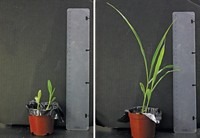Advertisement
Grab your lab coat. Let's get started
Welcome!
Welcome!
Create an account below to get 6 C&EN articles per month, receive newsletters and more - all free.
It seems this is your first time logging in online. Please enter the following information to continue.
As an ACS member you automatically get access to this site. All we need is few more details to create your reading experience.
Not you? Sign in with a different account.
Not you? Sign in with a different account.
ERROR 1
ERROR 1
ERROR 2
ERROR 2
ERROR 2
ERROR 2
ERROR 2
Password and Confirm password must match.
If you have an ACS member number, please enter it here so we can link this account to your membership. (optional)
ERROR 2
ACS values your privacy. By submitting your information, you are gaining access to C&EN and subscribing to our weekly newsletter. We use the information you provide to make your reading experience better, and we will never sell your data to third party members.
Environment
Diclofenac In The Environment
Several studies on the anti-inflammatory drug in wastewater offer new toxicity data and a remediation technology
by Sarah Everts
April 19, 2010
| A version of this story appeared in
Volume 88, Issue 16
The anti-inflammatory drug diclofenac’s legacy in the environment came into the public eye in 2004 when the collapse of an endangered vulture population in Pakistan was tied to the birds’ feeding on medicated cattle. Several studies have since shown that diclofenac and its metabolites, after human use, slip through wastewater treatment plants and persist in the environment. Researchers led by Leif Kronberg of Finland’s Åbo Akademi University are reporting that diclofenac and its metabolites can accumulate in rainbow trout livers at levels that can cause cellular changes (Environ. Sci. Technol., DOI: 10.1021/es903402c). Those levels were recently quantified by Charles R. Tyler of the University of Exeter, in England, and coworkers (Environ. Sci. Technol. 2010, 44, 2176). The two reports combined suggest that fish living downstream from wastewater treatment plants may be at risk. However, the news on diclofenac is not all bad. A team led by Willy Verstraete of Ghent University, in Belgium, reports that manganese oxides produced by bacteria are better at breaking down diclofenac than is synthetic MnO2 because the bacteria can reoxidize the formed Mn2+ (Environ. Sci. Technol., DOI: 10.1021/es9027327). Biological MnOx is a promising technology for removing diclofenac from wastewater in treatment plants, Verstraete says.






Join the conversation
Contact the reporter
Submit a Letter to the Editor for publication
Engage with us on Twitter